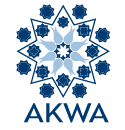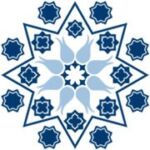One of the greatest challenges for Muslims living in the West is the limited sources of reliable and well-written English Islamic books. Most books on Islam, despite some excellent content, are translated from Arabic or other languages. Imprecise word choices and poor grammatical constructions cut the flow and limit the comprehension of poorly translated books. When a book is written by an English speaker, most of them tend to be by Western authors who are either lacking academically or are Orientalists. On the other hand, there are selected original seerah books that provide a narrative firmly rooted in the primary sources with good English, but most of them are traditional books that repeat chronological events of the life of the Prophet (pbuh) and are not very appealing to the average reader.
In 2015, a new biography of the Prophet (pbuh) appeared that became one of the more popular, publicized, and widely-distributed editions especially in the United States. The author of this award-winning book, Meraj Mohiuddin, is a first generation Indian American and was born and raised in New Jersey. He is a Harvard-trained practicing physician with a background in neuroscience. Being frustrated over the limited English books for his Islamic studies, he imagined a single resource that would allow him to explore Prophet Muhammad’s (pbuh) life in clarity and detail. So he began to compile his own notes, integrate timelines, concise review of events, glossary of names, family trees, maps and diagrams into a professionally edited textbook to share with others: Revelation – The Story of Muhammad (Peace and blessings be upon him)
Mohiuddin’s primary sources are the works of three scholars:
- The Sealed Nectar by Safiur Rehman Al-Mubarakpuri
- Muhammad: His Life Based on the Earliest Sources by Martin Lings
- Muhammad in Macca, Muhammad in Medina and Muhammad: Prophet and Stateman by William Montgomery Watt
He also takes advantage of the commentaries about the Prophet’s life from the following authors:
- Muhammad: A Prophet for our Time by Karen Armstrong
- In the Footsteps of the Prophet by Tariq Ramadan
- No god but God by Reza Aslan
- The Life of the Prophet (audio) by Hamza Yusuf
- Muhammad: Man and Prophet by Adil Salahi
We have to say that the overall quality of the printing, from heavy paper to strong binding, makes this book appear professional like a college textbook. It grasps the reader by its visually appealing and modern design with rich and colorful illustrations. These visual aids convey the seerah in a unique manner and allow readers to better understand the life of the Prophet (pbuh) and boost retention.
While giving the author all the credit for his sincere intentions and 13 years of hard work, we have to mention that the book is not without its flaws. First of all, Mohiuddin has no formal training in the Islamic sciences and does not claim to be an Islamic scholar himself. As he strongly urges the readers “to seek guidance from qualified scholars and their primary sources” we, too, advise the readers that this book should not be taken as a primary source, but rather as a supplement because it is far from being a complete and credible seerah. Secondly, looking at some of the scholars and authors that Mohiuddin chooses as his guide, it is evident that he did not draw on the most authoritative sources to present the life of the Prophet (pbuh). Excerpts from controversial figures like Watt, Armstrong and Aslan could be misleading as they are questionable in their Islamic knowledge. By the choice of Mohiuddin, omitting the widely acceptable vast treasure of authentic sources (Fiqh as-Seerah by Muhammad Al Ghazali, The Life of Prophet Muhammad by Ibn Kathir, The Life & Work of the Prophet of Islam by Muhammad Hamidullah to mention a few), readers have to rely on the inferior sources that have reductionist and inaccurate facts, misinterpretations and other shortcomings.
As for Mohiuddin’s other sources, we highly recommend that readers take advantage of these indispensable and widely accepted books to further their knowledge:
- The Sealed Nectar by Safiur Rehman Al-Mubarakpuri which is considered a standard of Prophetic biography
- Muhammad: His Life Based on the Earliest Sources by Martin Lings which is based on the four earliest biographers of the Prophet (pbuh)
- In the Footsteps of the Prophet by Tariq Ramadan which is academically rigorous in regard to classical Islamic sources
For all the reasons we have mentioned above we ask readers to read “Revelation” with a critical eye while taking advantage of the book’s noteworthy contributions such as the visual aids as this method of presenting information is what sets this book apart from others.
We hope and pray that this book will be revised and purified by the experts in the Islamic sciences from all its mistakes for the benefit of all.
Filiz Arslan
April 2022




Yorum Bırakın / Leave a Comment